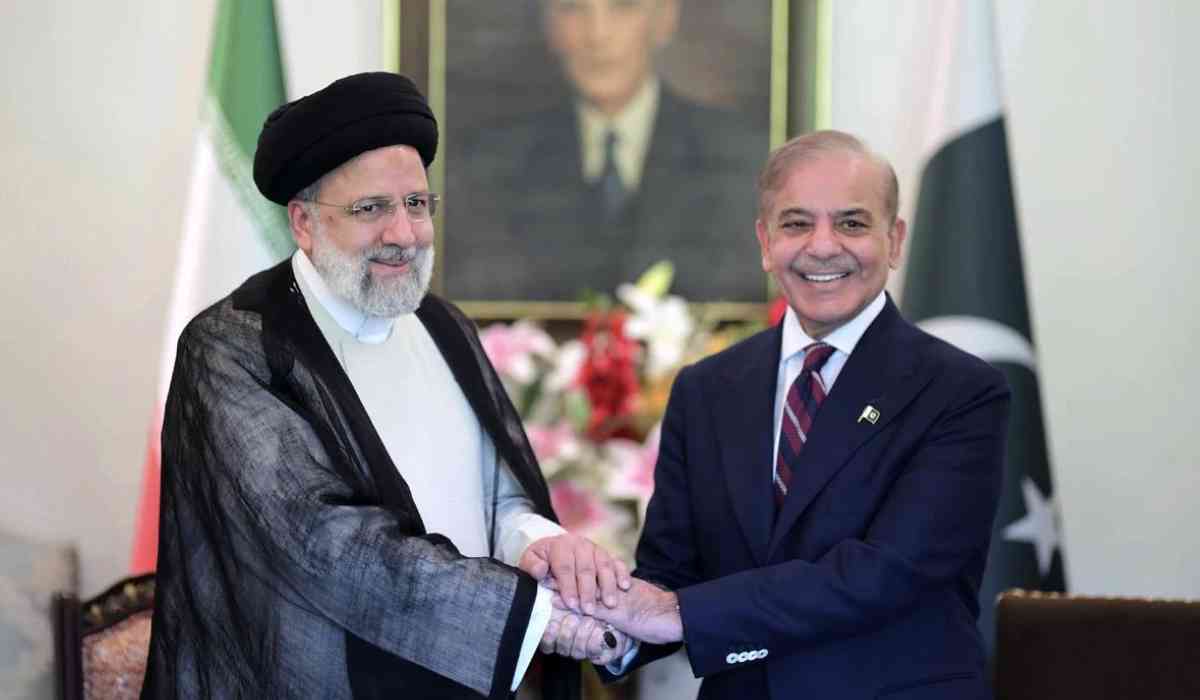On Monday, Iran's President Ebrahim Raisi began an official three-day visit to Pakistan's capital, Islamabad, signalling the two Muslim-majority countries' attempts to mend relations after recent military exchanges. This trip is crucial as it marks a very first trip of any foreign leader to Pakistan, after the Pakistan elections 2024, where Shehbaz sharif returned as the prime minister.
"The Iranian president is accompanied by his spouse and a high-level delegation," along with the the foreign minister, other cabinet members and senior officials, Pakistan's Ministry of Foreign Affairs said in a statement.
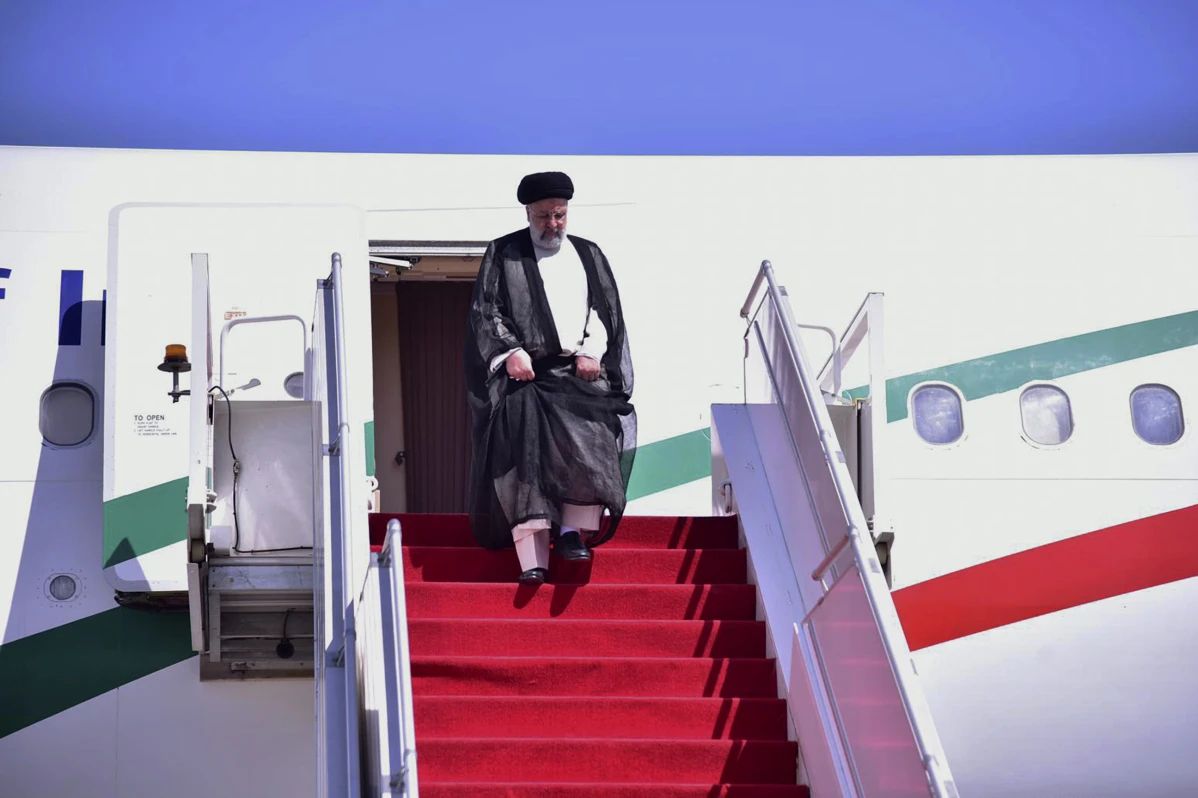
Photo: AP
During his three-day visit, Iranian President Ebrahim Raisi met with Shehbaz Sharif, the prime minister of Pakistan, and other officials. For security, the authorities also sent out hundreds of extra police and paramilitary personnel.
"Pakistan is also with the Palestinians," Sharif declared, praising Iran's "strong stand on the issue of Palestine."
The Iranian president and Pakistan's formidable army chief, Gen. Asim Munir, had a meeting on Monday night, according to a statement from the military. According to the statement, "matters of mutual interest, notably regional peace, stability, and border security," were the main topics of discussion.
Raisi also met Ishaq Dar, Pakistan's foreign minister. The two "affirmed commitment to peace and constructive dialogue for resolving regional challenges" as they spoke about regional and global developments.
In a move toward mending diplomatic ties, Iranian and Pakistani leaders promised to strengthen economic and security cooperation during their meeting on Monday.
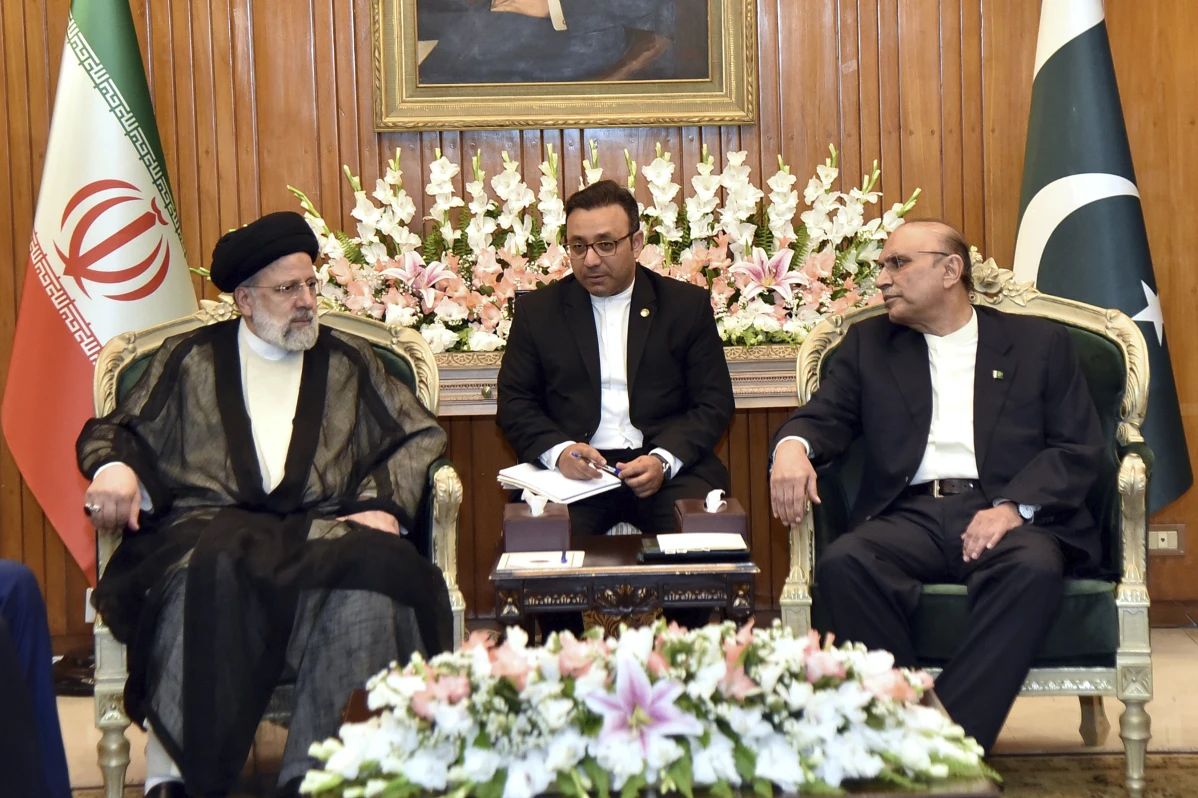
Photo: AP
( In photo) Iran's President Ebrahim Raisi also met his Pakistani counterpart, President Asif Ali Zardari.
It also stated that "both countries agreed on the necessity for joint efforts by both countries to combat terrorism."
According to the statement, the Iranian president will focus on trade and bilateral relations while visiting important cities like Karachi and Lahore.
Why is the Iranian President visiting Pakistan?
Raisi's visit coincides with heightened tensions following attacks by Israel and Iran, sparking fears of a regional escalation beyond the Gaza conflict.
Raisi's arrival in Islamabad on Monday represents their joint efforts to mend those ties that were temporarily strained between Islamabad and Tehran in January 2024 due to cross border airstrikes. The two neighbours' shared commitment to strengthening their border, energy, and economic cooperation is highlighted by the visit.
“The two sides will have a wide-ranging agenda to further strengthen Pakistan-Iran ties and enhance cooperation in diverse fields including trade, connectivity, energy, agriculture, and people-to-people contacts,” the Foreign Office said.
“They will also discuss regional and global developments and bilateral cooperation to combat the common threat of terrorism,” it added.
“Pakistan and Iran enjoy strong bilateral ties anchored in history, culture and religion. This visit provides an important opportunity to further strengthen Pakistan-Iran relations,” the FO concluded.
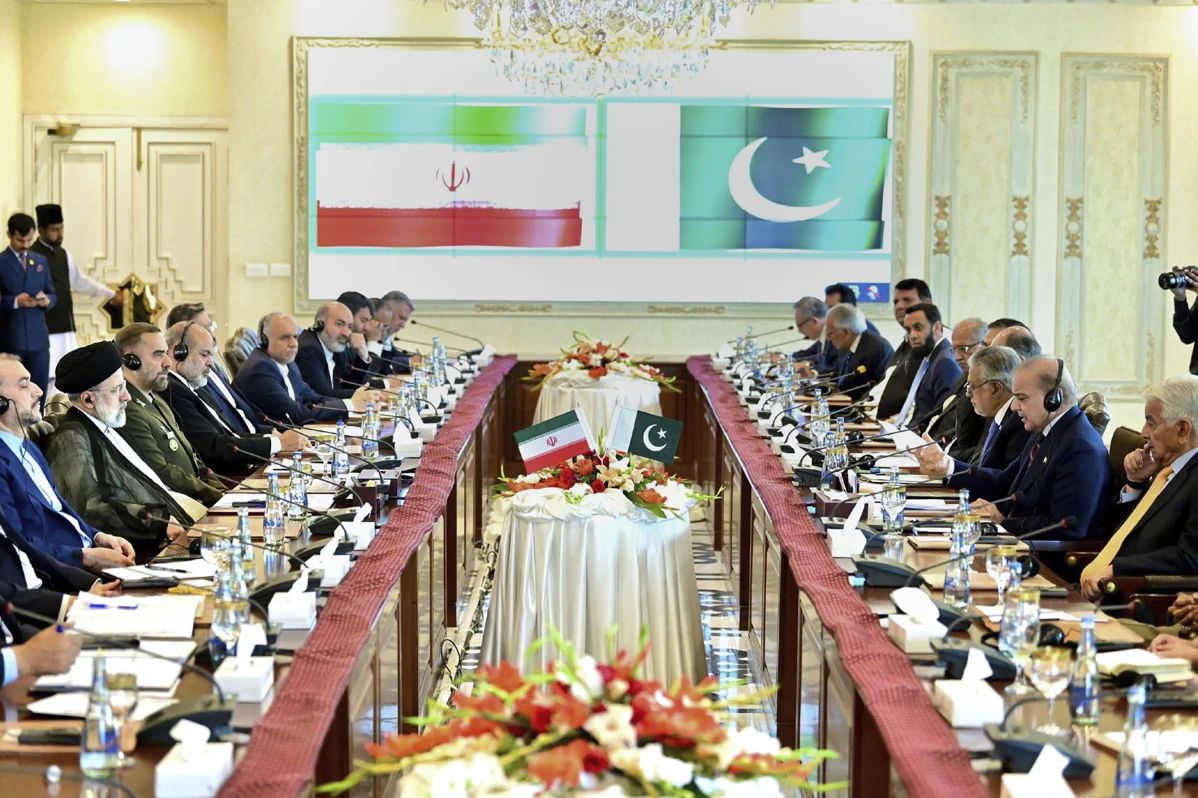
Photo: AP
“The Islamic Republic of Iran, in line with the neighbourhood policy … is interested in promoting relations with Pakistan and during this trip, various issues including economic and commercial issues, energy and border issues will be discussed with the government of Pakistan,” a statement by the Iranian presidential office said on Monday.
Iran -Pakistan Tensions
Relations between Iran, which is primarily Shiite, and Pakistan, which is mostly Sunni, have always been tense. Earlier this year, deadly cross-border strikes caused tensions to rise. There has long been tension between Pakistan and Iran, with both countries accusing the other of not doing enough to control armed groups.
January Cross-Border Airstrikes:
- Iran launched airstrikes in January against alleged insurgents inside Pakistani borders, focusing on the Sunni militant organization Jaish al-Adl, which it holds accountable for a number of assaults on soldiers and civilians. Two bases of the militant organization Jaish al-Adl were the target of the attack.
- Pakistan responded by attacking an Iranian village close to Saravan in retaliation, claiming that the attacks were directed against fighters from the separatist Balochistan Liberation Front (BLF). Pakistan also removed its ambassador from Tehran.
- However, the two neighbours made the decision to immediately reduce hostilities, and Tehran sent its top diplomat to Islamabad right away to repair relations.
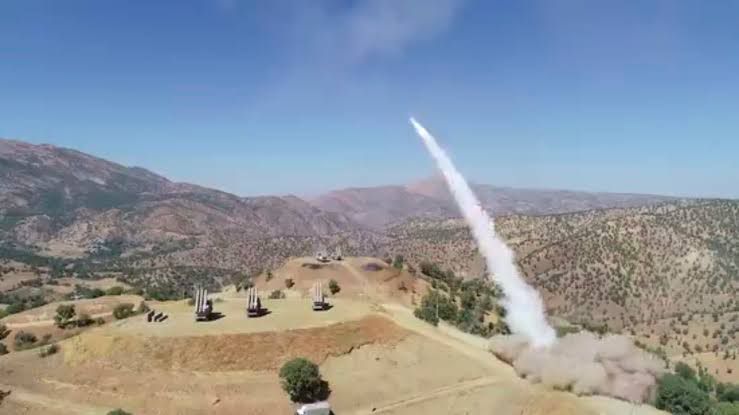
Photo: The Times of Israel
The two nations decided to work together to combat the "menace of terrorism," particularly in the border region. Prior to Raisi's arrival, Islamabad and Tehran discussed fighting "terrorism."
“At that time, Pakistan had a caretaker government in place. So what Iranians had indicated was that after the new government comes in, there could be a visit to repair the relationship and rebuild confidence,” Muhammad Faisal, a PhD Scholar at the University of Technology Sydney who specialises in Pakistan’s foreign policy, said.
Iran, Pakistan's efforts to mend relations
Gas Pipeline:
According to officials, the two parties also talked about a multibillion-dollar gas pipeline project that has been put on hold since 2014. The project, which Washington opposes as a breach of sanctions placed on Tehran due to its nuclear program, was started in 2013 with the goal of providing Pakistan, which is severely lacking in energy, with Iranian natural gas.
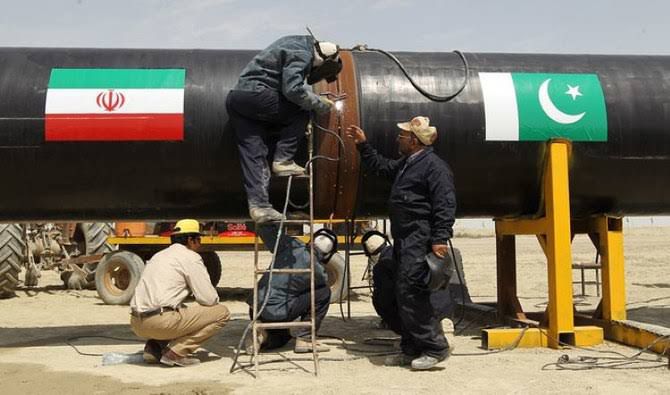
Photo: Arab News
Iran claims that after spending $2 billion, the pipeline on its side of the border is already finished. Tensions between Pakistan and the United States arose as a result of the latter's inability to complete construction on its territory by the end of 2014. After visiting Iran in 2013, the president of Iran later met with Asif Ali Zardari, his counterpart from Pakistan, who had assisted in the launch of pipeline project.
Bilateral Relations:
“In our meeting today, we (have) decided to promote bilateral relations between the two countries including political, economical, trade, cultural and others as far as possible,” said Raisi who arrived in Pakistan earlier during the day amid stringent security measures. “You will probably find some individuals who do not favour expansion and good bilateral relations between us but who cares – it is not important. We believe it is important to expand relations between our countries,” added the Iranian president.
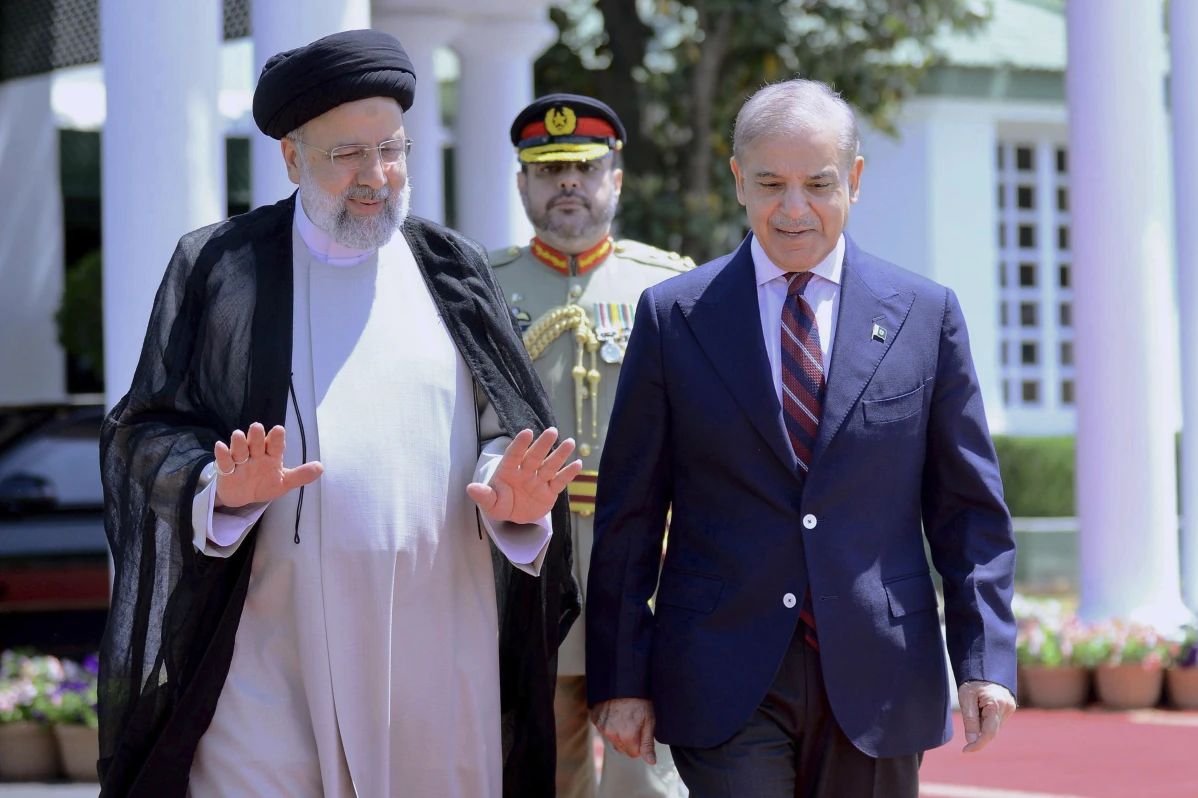
Photo: AP
“We have decided as a first step to increase trade volume between our two countries to $10 billion.”
The two sides, who presently trade more than $2 billion bilaterally, met earlier and decided to work together to end terrorism.
The PM was quoted by Radio Pakistan as saying, "The entire Pakistani nation welcomes the visit of the Iranian President."
PM Shehbaz stated in his speech that during their meeting, the two sides talked about security, religious, and historical issues.
“Today is an opportunity to make this friendship a happy and prosperous one.”
Eight Accords Signed:
Eight agreements spanning a variety of topics, including trade, science, agriculture, health, culture, and legal matters, were signed by Pakistan and Iran during the visit. Representatives from both sides signed the documents during the signing ceremony, which was supervised by President Raisi and Prime Minister Shehbaz.
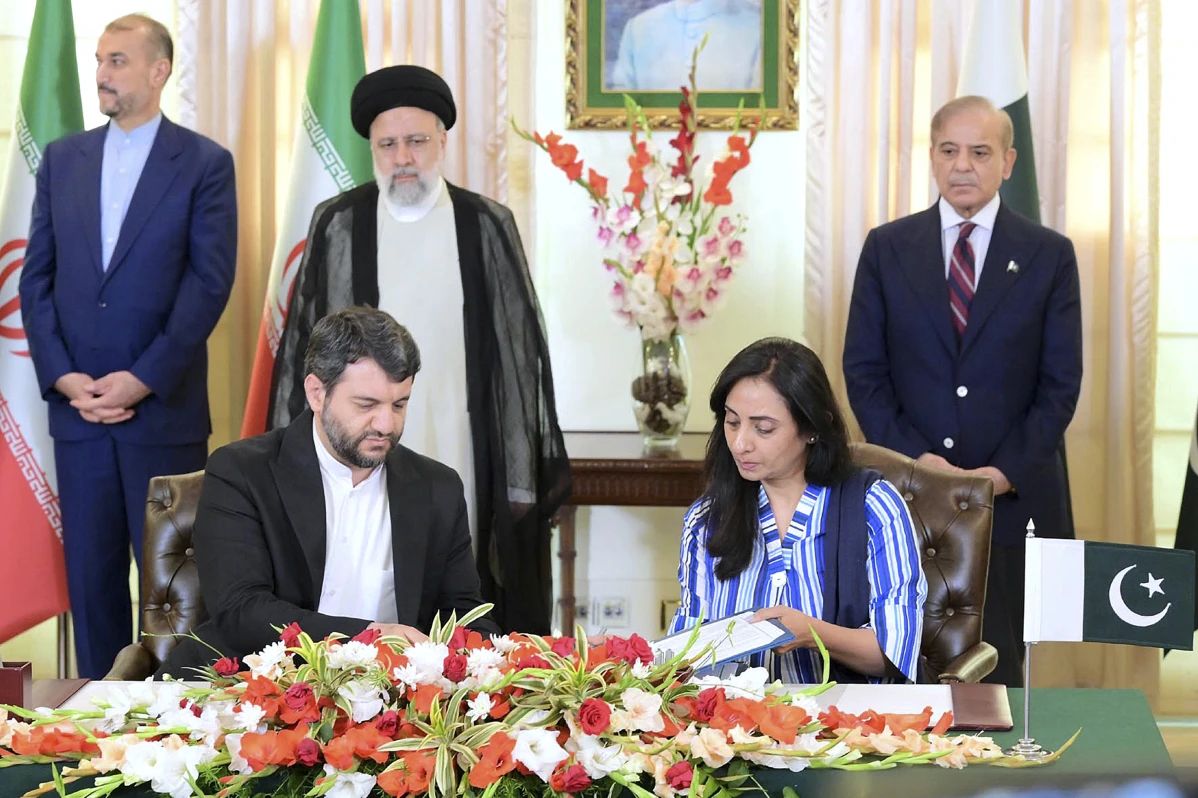
Photo: AP
Pakistani foreign policy experts are in favour of re-engaging with Iran despite border tensions because it's crucial to keep the relationship stable. At present, informal trade in crude oil and LPG is a focus of bilateral trade, which amounts to over $2 billion. Iran also provides border regions with electricity. Strong religious and cultural ties exist; each year, a large number of Pakistani Shia travel to Iran. Even so, formal trade and people-to-people interactions are still scarce, with religious tourism accounting for the majority of interactions despite the long border and shared cultural ties.
(Inputs from Multiple Agencies)
©️ Copyright 2024. All Rights Reserved Powered by Vygr Media.

